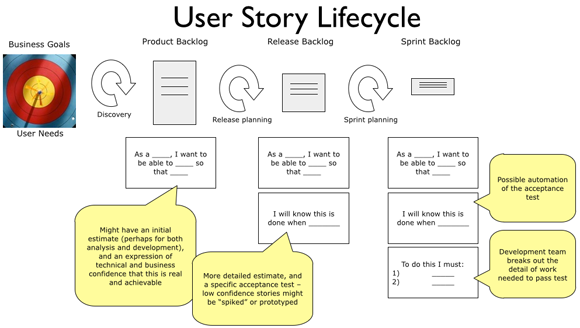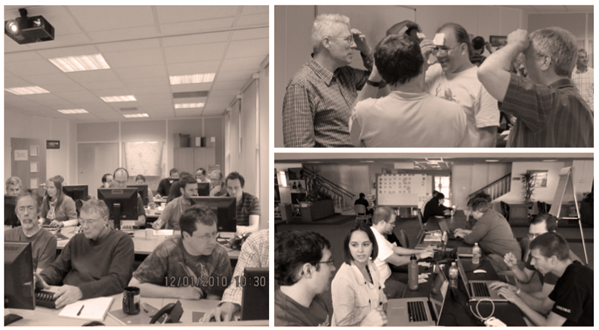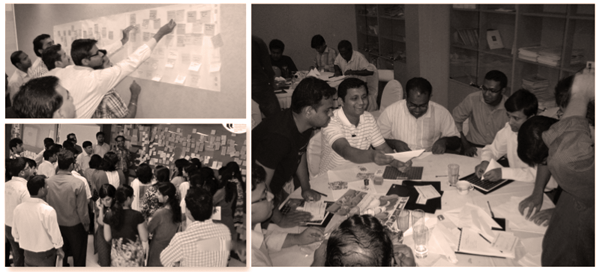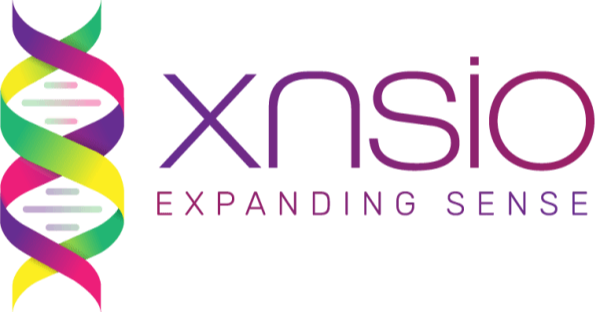Understand how agile values affect requirements engineering
User Stories That Work


Building a Foundation for Success
Empowering Teams for Impact

We offer a variety of training courses which are tailored to suit your development team. Our courses are anything but “by-the-book” rehashes of readily available scripts. Our immersive, fun filled hands-on approach and our wealth of practical knowledge gained from years of software development experience, ensures that the time you spend with us is a rewarding learning experience.
We are in the business of training & coaching teams and we strive to make it efficient, effective and enjoyable.It is unrealistic to claim that a single training program will make you the master of a subject. Trust us, shortcuts are not sustainable! Hence our unique training courses are created to quickly put you on the path of self-learning and continuous improvement. We can get you kick-started!

Key takeaways and practical knowledge

At the end of this training the team will be able to:

2-Day Workshop Breakdown
- Defining the Project Vision
- Identifying project stakeholders
- Defining and Modelling User Roles
- Prioritising User Roles and Goals
- Defining the User Story Map
- Crafting Release Milestones and Themes
- Authoring Epics and User Stories
- Refining user stories using INVEST principle
- Writing acceptance criteria and tests for user stories
- Detecting story smells
- Handling defects
- Estimating with story points
- Planning iterations and releases
- Prioritizing the product backlog
- Various techniques to break user stories down to manage them inside iterations
The Big Picture
Interaction Design with Low Fidelity Prototyping
Capture nonfunctional requirements as stories
Working with user proxies
Conducting interviews
Conducting a story-writing workshop
Planning with User Stories
Workshop Retrospective

Benefits
All of our courses offer following benefits:
- Unlimited access to course materials, sample projects and code examples with relevant tools
- Low participant-to-instructor ratio
- Heavy focus on hands-on learning experience
- Live demos and real-world examples
- Interactive activities/simulations to help understand the essence and concepts
- Open discussion and dynamic format
- Customizable
Post training, if your team needs help, we’ll be happy to assist your team.

Instruction Method, Audience & Prerequisites
Method of Instruction
Transfer %
Target Audience
Course Level
Course Prerequisites
- Required: Understanding of the life-cycle of software projects
- Required: In-depth understanding of Business Analysis and User Requirements Gathering
Want to enroll or customize a training for your team?
Contact us to get started.
Training Details
Pricing
- Trainer Fee: Rs. 1,70,000 (~2000 USD) per day
- GST: Additional 18% GST applicable on all trainings delivered in India
- Expenses: Travel, accommodation and other expenses to be paid by the company
- No. of Participants: All our training have a cap of max 20 participants per training
Contact Details
If you are interested in any of the trainings listed here or interested in customizing these trainings to your needs, please contact us.
Timings
9:00 AM – 6:00PM
These trainings can also be conducted on a weekend if that works better for your team.
General Requirements
- HDMI projector (1024x768 minimum) & Projector screen
- 1 White board & Dry erase markers.
- Cluster seating with 5-6 people on each table.
- 1 Flip chart with the stand and marker pens for each table.
- Notepad and Pen for each participant.
- Ample room for students in terms of room size and set up.
- For Dev trainings: at least one powerful workstation between two programmers.
- HDMI projector (1024x768 minimum) & Projector screen
- 1 White board & Dry erase markers.
- Cluster seating with 5-6 people on each table.
- 1 Flip chart with the stand and marker pens for each table.
- Notepad and Pen for each participant.
- Ample room for students in terms of room size and set up.
- For Dev trainings: at least one powerful workstation between two programmers
General Requirements
To ensure a successful workshop, we require the following facilities:
- HDMI projector (1024×768 minimum) & Projector screen
- 1 White board & Dry erase markers
- Cluster seating with 5-6 people on each table
- 1 Flip chart with the stand and marker pens for each table
- Notepad and Pen for each participant
- Ample room for students in terms of room size and set up
- For Dev trainings: at least one powerful workstation between two programmers
User Stories helps us manage requirements. Their primary job is to define the value a user gains from the system. Since User Stories focus on the underlying Agile values of collaboration and Just-In-Time definition, it makes them a good Agile tool. User Stories are small narrative texts (2-3 sentences) in everyday/business language of the end user of a system. These capture what the user does, or needs to do as a part of his/her job function.
This workshop focuses on the foundations of User Stories. It gives insights about how to author and maintain effective stories that meet the INVEST principle. In addition various patterns, strategies, tools and techniques are also explored.

Learning Outcome
At the end of this training the team will be able to:
- Understand how agile values affect requirements engineering
- Use Agile as a risk mitigation strategy to handle requirements
- Develop a meaningful vision statement
- Identify and describe user roles and personas
- Write and evaluate user stories
- Identify and document nonfunctional requirements and business rules
- Manage changes to requirements
- Understand the characteristics of an effective user representative
- Use lightweight techniques for iterative requirements gathering
- Conduct story writing workshops using low fidelity prototypes
- Write effective acceptance criteria and tests for user stories
- Identify common story “smells”
- Prioritise and estimate user stories for iterations and releases
Course Outline
The Big Picture
- Defining the Project Vision
- Identifying project stakeholders
- Defining and Modelling User Roles
- Prioritising User Roles and Goals
- Defining the User Story Map
- Crafting Release Milestones and Themes
Interaction Design with Low Fidelity Prototyping
Capture nonfunctional requirements as stories
Working with user proxies
Conducting interviews
Conducting a story-writing workshop
- Authoring Epics and User Stories
- Refining user stories using INVEST principle
- Writing acceptance criteria and tests for user stories
- Detecting story smells
- Handling defects
Planning with User Stories
- Estimating with story points
- Planning iterations and releases
- Prioritizing the product backlog
- Various techniques to break user stories down to manage them inside iterations
Workshop Retrospective

Training Details
Method of Instruction
We use a Socratic method for training that involves a 100% hands-on workshop with interactive dialogues and demonstrations.
Transfer %
Knowledge: 40%, Skill-Building: 60%
Target Audience
Product Owner, Business Analyst, Scrum Master, Team Leads, Architects, Test Lead
Course Level
Beginner to Intermediate
Course Prerequisites
- Required: Understanding of the life-cycle of software projects
- Required: In-depth understanding of Business Analysis and User Requirements Gathering
General Requirements
- HDMI projector (1024×768 minimum) & Projector screen
- 1 White board & Dry erase markers
- Cluster seating with 5-6 people on each table
- 1 Flip chart with the stand and marker pens for each table
- Notepad and Pen for each participant
- Ample room for students in terms of room size and set up
- For Dev trainings: at least one powerful workstation between two programmers




